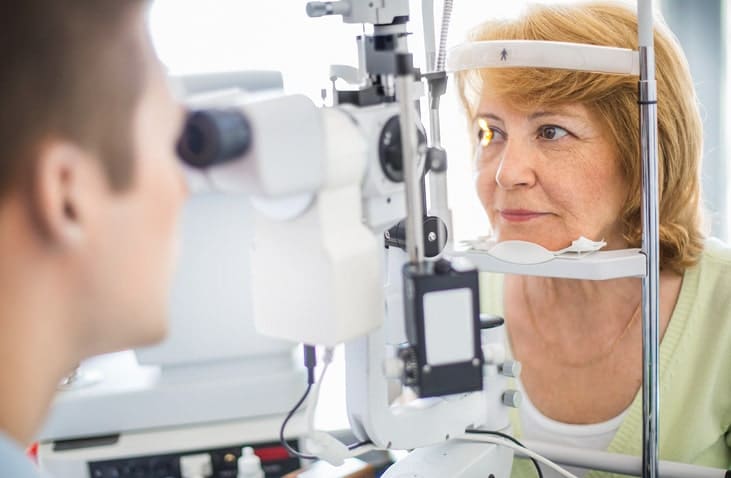Graves Disease Treatment in Bellevue, WA
What Is Graves Disease?
Grave’s disease is an immune system disorder that stems from the thyroid gland. When the thyroid gland produces an excess of hormones it is called hyperthyroidism and it can negatively affect various part of a patient’s body. Graves’ disease is most common among women ages 20 to 40 and its cause is unknown. Research speculates that it can be caused by heredity, age, gender and stress levels. In the case that Graves’ disease specifically affects the eye area it is known as Graves’ ophthalmopathy.
Graves’ ophthalmopathy occurs when a patients immune system attacks the muscles and tissue around the eyes. When inflammation occurs the tissue surrounding the eye begins to build up. This build-up of tissue is what makes the eyes look as if they are bulging out of the eye orbit.
Graves’ Disease Symptoms
Graves’ disease has a variety of symptoms that can appear throughout a patients body. When Graves’ disease affects the eyes, such as Graves’ ophthalmopathy, there are specific symptoms that occur. These symptoms range from disfigurement to orbital discomfort, and include:
- Compressive optic neuropathy
- Spontaneous globe prolapse
- Disfigurement
- Discomfort due to orbital pressure or pain
- Orbital congestion
- Preoperative assessment
Diagnosing Graves’ Disease
To diagnose Graves’ disease, a full ophthalmic and orbit work-up is performed. This includes measuring the extent of protrusion of the eyeball. External photographs are taken, including full face, profile views, and a view from above and below showing the amount of globe protrusion, how much the eye protrudes from the socket. Patients may have to undergo more in-depth imaging such as CT scan, MRI or ECG. Blood tests can also be performed including a full blood count and thyroid function test (TSH, free T3 & T4).
“I don’t usually write reviews, but I felt Dr. Tarbet definitely deserves the best review. She is so knowledgeable about the anatomy of the face and eyes. She really knows her stuff and knew exactly what to do to help me. She is very friendly and instantly makes you feel at home. Very down to earth girl. She is very dedicated to her job and patients and made an extra trip from another clinic.” -Amy
What Is Orbital Decompression?
Orbital Decompression is a surgical option to alleviate the symptoms of Graves’ disease. After other treatment methods such as oral medication or eye drops have failed, patients may need surgery. Graves’ disease causes pressure and bulging behind the eye and orbital decompression is a surgical means of creating more space. Once that space is created, the eye will return to a more normal position.
Orbital Decompression Surgery
In order to alleviate pressure within the eye orbit, Dr. Kristin Tarbet must perform orbital decompression surgery. First, she will make an incision next to the eye that exposes the optic nerve. This incision will allow the cerebrospinal fluid that has been building up to drain. This, in turn, takes pressure off the optic nerve.
Next, Dr. Tarbet can either remove bone or orbital fat from around the eye. This can also be done in combination and the specifics of your surgery will be discussed in your consultation. The removal of bone and fat allows the bulging eye muscles to flow over into the area that previously held bone. Finally, the eye is “decompressed” allowing the patient to no longer experience a bulging appearance.
Benefits of Eye Surgery
The primary goal of an orbital decompression surgery is to create more space in the orbit to allow the eye to return to a more normal position. However, there are some additional benefits to having orbital decompression surgery. Besides a more normal appearing eye, having the procedure done alleviates feelings of eye discomfort and improves corneal exposure. These benefits include:
-
- Improve discomfort caused by inflammation
- Reduce the risk of corneal infection
- Improve corneal exposure
- Possibly improve raised intraocular pressures, especially when looking upwards


